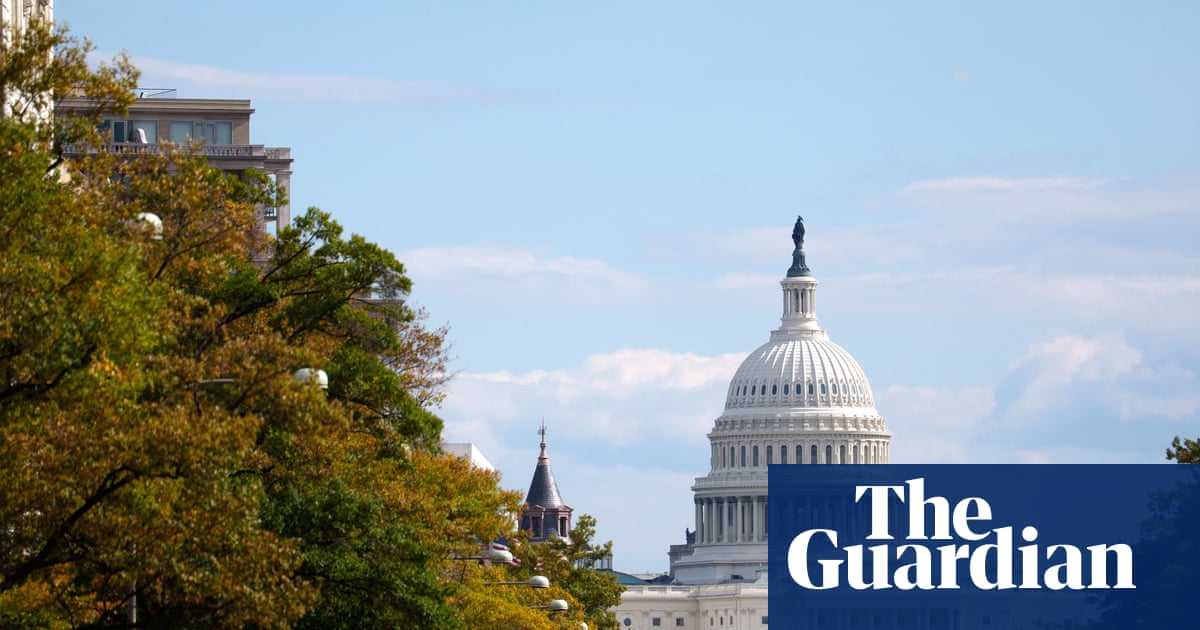National Guard troops started patrolling in Memphis, Tennessee, on Friday, even after judges stalled President Donald Trump's plan to deploy troops to assist Immigration and Customs Enforcement agents in other states.
The troops, dressed in Guard fatigues and protective vests, with guns in their holsters, patrolled at a Bass Pro Shops store at the Pyramid, a Memphis landmark beside the Mississippi River. The patrols — part of Trump's federal task force, were being escorted by a Memphis police officer.
The Associated Press saw at least nine Guard members on Friday, but it was unclear how many troops in total were on the ground in Memphis or were expected to arrive later.
A federal judge on Thursday blocked the deployment of troops in Chicago for at least two weeks, citing no significant evidence of a “danger of rebellion.”
Trump has insisted that crime in Chicago, Portland, Oregon, and other Democrat-led cities is rampant and that federal intervention is needed to bring them under control, despite statistics not always backing up his claims.
A separate court battle in Oregon has delayed a similar troop deployment to Portland.
Here’s where things stand:
Violent crime a problem in Memphis
Trump announced Sept. 15 that he intended to deploy the Guard to Memphis. At the time, Tennessee Gov. Bill Lee, a Republican, embraced the plan as part of broader law enforcement operations in the city.
Memphis Mayor Paul Young, a Democrat who did not request the deployment, said he and other officials hope the task force will target violent offenders rather than scare, harass or intimidate residents.
The city has recorded a high rate of violent crime for years, including assaults, carjackings and homicides. While this year’s statistics show improvement in several categories, including murders, violence remains a problem.
Federal officials say agents from the FBI, Drug Enforcement Administration, ICE and the U.S. Marshal’s service have made hundreds of arrests and issued more than 2,800 traffic citations since the task force began operating in Memphis on Sept. 29.
Illinois deployment blocked
Since the start of his second term, Trump has sent or discussed sending troops to many cities, including Portland; Baltimore; Memphis, Tennessee; the District of Columbia; New Orleans; and the California cities of Oakland, San Francisco and Los Angeles.
A legal challenge disrupted — for now — the Republican president's troop deployment plan for Chicago.
U.S. District Judge April Perry in Chicago ruled Thursday that the Trump administration violated the 10th Amendment, which grants certain powers to states, and the 14th Amendment, which assures due process and equal protection, when he ordered National Guard troops to the city.
Perry said her order would expire Oct. 23 at 11:59 p.m. and set an Oct. 22 hearing by telephone to determine if the order should be extended for another 14 days.
State and city leaders celebrated the decision, including Gov. JB Pritzker, who said: “The court confirmed what we all know: There is no credible evidence of a rebellion in the state of Illinois. And no place for the National Guard in the streets of American cities like Chicago.”
Officials at U.S. Northern Command directed questions to the Department of Defense, which declined to comment because it is barred from commenting on ongoing litigation.
Troops arrive in Illinois and patrol outside Chicago
Guard members from Texas and Illinois arrived this week at a U.S. Army Reserve Center in Elwood, southwest of Chicago. All 500 are under the U.S. Northern Command and have been activated for 60 days.
A small number slept in vans Wednesday night outside an Immigration and Customs Enforcement detention facility in Broadview, Illinois, and started patrolling Thursday morning behind portable fences. There have been occasional clashes between protesters and federal agents at the ICE site over the last several weeks.
Judge restricts federal agents’ use of force
Also Thursday, another federal judge in Illinois temporarily ordered federal agents to wear badges and banned them from using certain riot control weapons against peaceful protesters and journalists outside the Broadview facility, about 12 miles (19 kilometers) west of Chicago.
Judge Sara Ellis' preliminary injunction restricts agents’ use of force, including pepper balls, rubber bullets and physical force such as pulling, shoving or tackling on protesters and journalists who don’t pose a serious threat to law enforcement.
That order covers all of northern Illinois and also requires federal agents to wear “visible identification” such as badges, the subject of heated debate as viral footage has surfaced of masked, plainclothes officers involved in immigration enforcement in several U.S. cities.
A lawsuit filed by a coalition of news outlets, media associations and protesters accuses ICE, the Department of Homeland Security and Border Patrol of unleashing a campaign of violence and intimidation against peaceful protesters and journalists during weeks of protests outside the Broadview facility.
___
Associated Press reporters across the U.S. contributed, including Adrian Sainz in Memphis, Tennessee; Claire Rush in Portland, Oregon; Rebecca Boone in Boise, Idaho; Sophia Tareen in Chicago; Jack Brook in New Orleans; Christopher Weber in Los Angeles; and Josh Boak and Konstantin Toropin in Washington, D.C.

 German (DE)
German (DE)  English (US)
English (US)  Spanish (ES)
Spanish (ES)  French (FR)
French (FR)  Hindi (IN)
Hindi (IN)  Italian (IT)
Italian (IT)  Russian (RU)
Russian (RU) 























Comments